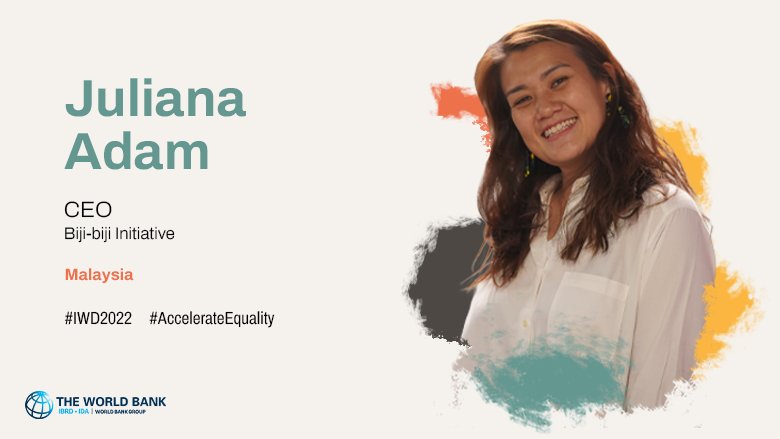I actually started my journey wanting to do something for marginalized communities. I've always wanted to help in a way that empowers them to make a positive shift in their lives, to be able to let them see and believe that they hold the key to change. So I’ve always worked with communities – youths, single mothers, the unemployed, in upskilling and training.
The skills that I, along with my partners, imparted to these communities started with our own natural passion – “making”. We are natural makers, crafters, DIY-ers, and given our own background and where we come from, we tend to make things from scratch and use any resources available to us. This includes making or building from waste. This opened up a new pathway to start a business with environmental sustainability at its core, especially when we discovered the term ‘upcycling’; seeing how this field is growing and understanding deeper the importance of it. For me, it is a perfect combination of being able to empower communities, and also to create a positive environmental impact together as a larger collective.
Calm, ambitious, creative.
Everyone has the opportunity for great achievements given the right encouragement and nurturing. Generally, it is known that women tend to be more involved in impact work and sustainability initiatives, compared to men.
A study has shown that women have an advantage for certain character strengths over men, including kindness, love and gratitude. Given this, if we were to nurture girls and women, tapping onto their natural character strengths and their innate nurturing and leadership qualities, they will be able to play pivotal roles in sustainability and combating climate change.
There’s still a lack of urgency among the general public when it comes to climate change. My circle – thanks to my nature of work – may be aware of what's happening and they understand the urgency, but I am also exposed to larger groups of people who don't see climate change as a crisis that directly affects them.
A lot of the conversations I have with them tends to be centered on ‘what the big guys are doing’. Whereas I feel that what needs to change is having the mindset that ‘I’ can make a difference, that I play a role in climate change. People need to start believing that it is not someone else's job to fix climate change. They need to start taking the responsibility as individuals and do their part; no matter how small they may feel their contribution is.
People are your biggest asset. Be sure to protect, nurture, and grow them. In doing this, you yourself will thrive and all this will lead to achieving the larger goal. Connecting with the people you work with whether it is your team, your beneficiaries, the general public or your clients is super important. It’s not always the final picture impact that you create that makes a difference. It’s the story you tell along the way that touches the lives of others and creates the ripple effect. You never know how your stories will affect people, and often gives the little push and motivation for them to do more, to keep going.
Sometimes, when in a leadership role, you may not know what you’re doing, or which decision is the best, or how to move forward. Many times I’ve been stuck and I’ve always looked to my people to give guidance and insights to help with the next steps. As a leader, you are there to guide the way but you also learn and get guided yourself, by the people that surround you.
On top of all the policies that could be put in place, I think the greatest challenge is in changing the people’s mindset. It’s sad to count the number of times I have seen situations where women are simply placed in certain leadership positions in order to fulfil the quota; yet, when it comes to actually respecting and valuing her work, there is none. A lot of these mindset shifts need to begin at home, where the language used should be empowering to girls and encourages self-confidence and self-belief, because these are the basis of building great women leaders.
We must all walk the talk, and whole-heartedly believe in the term ‘gender equality’ if we were to make any difference in this at all.
The team. Doing things together. Building on each other’s strengths.
Because I believe that one can only do so much alone, but when you’ve got a band of passionate individuals, with the same end goal, bringing about their own skills, stories and strengths, we can achieve so much more.
The other thing that makes me keep doing what I do, is the fact that we get to push boundaries and challenge the status quo. That is the whole essence of why we created Biji-biji and why we’re passionate about what we do. When someone tells us it is impossible to make any difference because of ’how things are’, we take things into our own hands and prove to them that we can, in fact, make a difference.
Don't let anyone say you can't do anything. The only person that you need to convince and show that you can do it, is yourself. And once you’ve got that; people will start believing in you too. Also: find your tribe. I’m huge on collaboration and teamwork and working together, because I have seen how much I can do alone compared to how much I have achieved in a team, so I know how important it is to work with others, to complement each other’s strengths, and to keep each other inspired.
**The views expressed in this interview do not necessarily represent the views of the World Bank Group.

